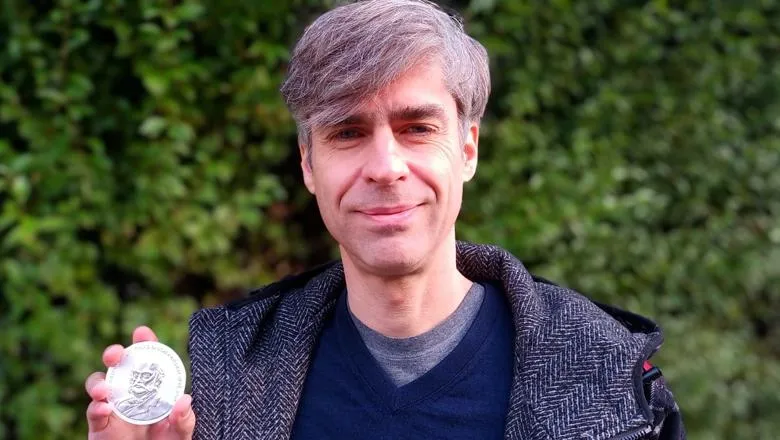I am delighted to have received this prestigious award that marks decades of collaborative research into Generalised Hydrodynamics (GHD). The work on GHD continues to be taken forward and extended by an active community of researchers, and I am particularly grateful to all my many collaborators over the years. I see the modern theory of generalised hydrodynamics as a powerful tool for bringing to the fore deep concepts in physics. It also shows how fundamental physical ideas can transcend narrow subject divisions – enabling cross-disciplinary collaborations, which is essential for doing good science.
Professor Benjamin Doyon
22 November 2022
Maths Professor at King's awarded top Institute of Physics prize for theoretical physics
Professor Benjamin Doyon received the 2022 John William Strutt, Lord Rayleigh Medal and Prize

A top Institute of Physics prize was awarded to Professor Benjamin Doyon, Professor of Theoretical Physics in the Department of Mathematics, King’s College London.
Professor Doyon received the prize in recognition of his pioneering contributions to developing a new theory of hydrodynamics, that works to explain previously unanswered questions about the large-scale laws of motion when atoms or molecules are constrained to move in one-dimensional settings.
The John William Strutt, Lord Rayleigh Medal and Prize is awarded annually for distinguished contributions to theoretical, including mathematical and computational, physics. In the past, it has been awarded to eminent scientists including Professor John Chalker, University of Oxford University in 2008, and Professor Kellogg Stelle of Imperial College London in 2020.
Professor Doyon is a well-respected leader in the field of theoretical physics, having co-pioneered a highly successful theoretical framework referred to as Generalised Hydrodynamics (GHD). The conventional theory of hydrodynamics, first introduced more than 200 years ago, explains how waves in air and water propagate as the atoms and molecules of liquids and gas move and collide with each other billions and billions of times. However, when an experiment in 2006 observed atoms moving in one dimension, the conventional theory was unable to account for what was happening. This mystery was understood to be just the “tip of an iceberg” - an example of many situations where conventional hydrodynamics would not work.
In 2016, Professor Doyon and his team solved the mystery by discovering the equation which underpins and predicts the collective behaviour of atoms in one dimension. Their work established the universal framework which explains situations when constituents such as atoms or molecules are constrained to one dimension of space, and their interactions have a special property called ‘integrability’. It also goes beyond the atomic scale and is understood to include waves such as light waves in fibre-optic cables and waves in water called “solitons”, which form a particular fluid when moving in elongated water tanks.
The discovery of this theory opens major new avenues of theoretical and experimental research across a range of outputs including condensed matter, cold atomic and statistical physics research. In so doing, GHD has the potential to develop new technological solutions to key problems, including improving our understanding of the use of fibre optics in communications, potentially speeding up the transfer of information.
Professor Doyon said:

